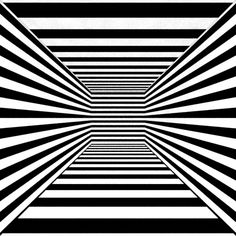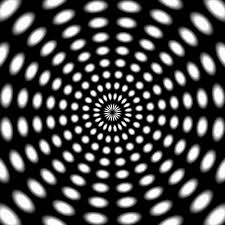|
LITR 4368 Literature of the Future |
Sample answers
for Essay 2:
|
 |
JohAnna Hunter
12
Dec 2017
The Rise of Future Literature in the Classroom
Ten
years ago, if you stepped into a high school classroom, chances are you would
find the same genres of books that were used in decades passed. Today, however,
the picture is a little bit different. Curiously, there is much more young adult
fiction in the genres of science fiction and future literature. This may have
led to a rise in popularity for these types of books, so I will explore some
reasons as to why they are so prevalent in today’s classrooms.
Growing up, I was an avid fan of science fiction and future literature.
Unfortunately, my love for these genres was not really welcomed into the
academic classroom. The books that we read were mostly canonical texts, and I
think that most of the students either did not understand the material, were
bored by it, or simply chose not to read it altogether. This was heartbreaking
for me, because I have always loved books, and reading the texts that interested
me led me to discover more and more books that I enjoyed. For those students
that hated to read, I wanted to tell them that they just needed to discover the
type that they liked. As Derrick Smith points out in “Bringing Fantasy and
Science Fiction Into the Classroom,” he was not “even aware that these genres
really interested me because [he’d] only been exposed to one such book in [his]
entire academic experience, even prior to high school” (Smith 19). Joan B. Grady
says that “One can remember trying to find examples to read. Jules Verne and
H.G. Wells could be found if one were educated enough in the genre to seek out
these authors” (Grady 193). Since I want to be a high school English/Language
Arts teacher, I have thought about this for a long time. Why should children who
may not have time or resources outside of school to find the types of books they
like be forced to read something that turns them off to reading altogether? This
does not make any sense, and again, I felt heartbroken every time I thought
about this. Even in college I have been subject to reading things that I truly
did not enjoy, thus challenging the fact that I really did love to read, but
quickly became disinterested in literature.
Smith
also explored this and asked a critical question: “I wonder, does this mean
these two genres [fantasy and science fiction] are simply too poorly written or
lacking in literary quality to be studied in preparation for the state
assessments that were and still are administered…?” (Smith 19-20) I have often
wondered the same, but according to the Texas Essential Knowledge and Skills
(TEKS) which schools use to prepare their students for state exams, “The student
is expected to demonstrate knowledge of literary genres such as realistic
fiction, adventure stories, historical fiction, mysteries, humor, myths,
fantasy, and science fiction” (TEKS Chapter 110). Smith does his own research
and determines the Common Core Standards, which 42 of the 50 states have adopted
(not including Texas) do not include science fiction into their curriculum other
than Ray Bradbury’s Fahrenheit 45.
Grady quotes Hanor A. Webb who describes the genre as “prophetic,” “descriptive
of the social impact of science,” and “imaginative, possible fantastic
situation” (Grady 194). What better way to teach students how to be creative and
think outside th box than to teach them science fiction?
I
think that science fiction and future literature will ultimately serve the
purpose of conveying varying perspectives of literature. Stories such as Wells’
The Time Machine could have helped me
to understand the class distinctions that we talked about in history class by
introducing me to the perfect world of the Eloi and the dirty underground
working world of the Morlocks. Butler’s
Parable of the Sower could have introduced me to a scenario that I never
thought of before that could have led me write a better paper for our creative
writing section. Stories such as “They’re Made of Meat” introduces alien contact
in a way that it not savage, and it allows some humor into the classroom as
well. These types of texts are important because they introduce terms such as
decline or progress, utopia and dystopia, low-tech and high-tech and so much
more. Students today do not have a hard time imagining a high-tech world because
the world is dominated with technology. It is also not hard for them to imagine
a dystopian society because the news paints the world as one giant dystopia. A
story such as “Drapes and Folds” could introduce them a high-tech dystopian
world, but offer somewhat of a solution through the actions of Pearl and Xera.
There are countless subjects that science fiction could help students understand
tough issues that are otherwise hard to explain. By exploring these narratives,
students would be offered an alternative to the tradition answers that they’re
used to.
Teachers can assign readings that allow students to compare or contrast
characters, plots, or the author’s purpose to allow their students to talk with
and learn from one another, further adding to their interest in reading. An
additional benefit associated with doing this could be that the students learn
to work collaboratively to piece together information because science fiction
reading requires more legwork than traditional texts. For too long the canon has
consisted of stuffy authors and boring works. Novels that allow readers to delve
into their own imagination and those of others will help stifled creativity.
These novels could also be conversation starters between people with different
religious, ethnic, and cultural backgrounds. Like the different types of genres,
there is always a common connection, no matter how small, and we have to start
the conversation somewhere.
Teachers of English Language Arts have an already tough task getting their
students to read, but by allowing them to choose the texts they enjoy, the goal
of teaching students to become independent literary scholars becomes less
daunting. While knowledge of canonical texts remains crucial to understanding
literature, so does the need for students to actively participate in their
learning. After all, “when we construct classrooms that place a high value on
the strategies and habits that make up our best and most generous vision of a
reading life rather than on a narrow canon of literary works, we teach our
students to fish instead of catching them a fish” (Bomer 99).
To my
surprise, however, I learned that the science fiction and future literature
genres have become extremely popular in today’s classrooms. As Smith points out,
in the 2011 Top Ten Nominee list of Young Adult Literature, “more than half of
these 25 titles fall into the categories of either fantasy or science fiction”
(Smith 21). Grady would have to agree with this statement, stating that “Science
fiction is a literary genre that has gained respectability in the past few years
than it had experienced previously” (Grady 193). This means that young adults
are actually interested in these genres! It is no longer considered a stigma to
read these types of books, as it was in the olden days. This creates new
opportunities for all types of student to not only kindle an interest in these
genres, but it allows those students who love video games, anime, and other
types of stereotypical “nerd culture” to speak up and have a voice in the
literature classroom. Countless movies have been made about some of the most
popular books, and this could contribute to the rise in popularity of the genre.
Works
Cited
Bomer, Randy. Time for Meaning: Crafting
Literate Lives in Middle and High School. Heinemann, 1995.
“Bringing Fantasy and Science Fiction
into the Classroom” by Derrik Smith from
The ALAN Review, Winter 2012 pp. 19-24
“Science Fiction: The Future in the Classroom” by Joan B. Grady from
Reading Horizons Volume 19, Issue 3,
April 1979, Article 2 pp. 191-197
TEKS Chapter 110:
https://tea.texas.gov/WorkArea/DownloadAsset.aspx?id=51539616205




